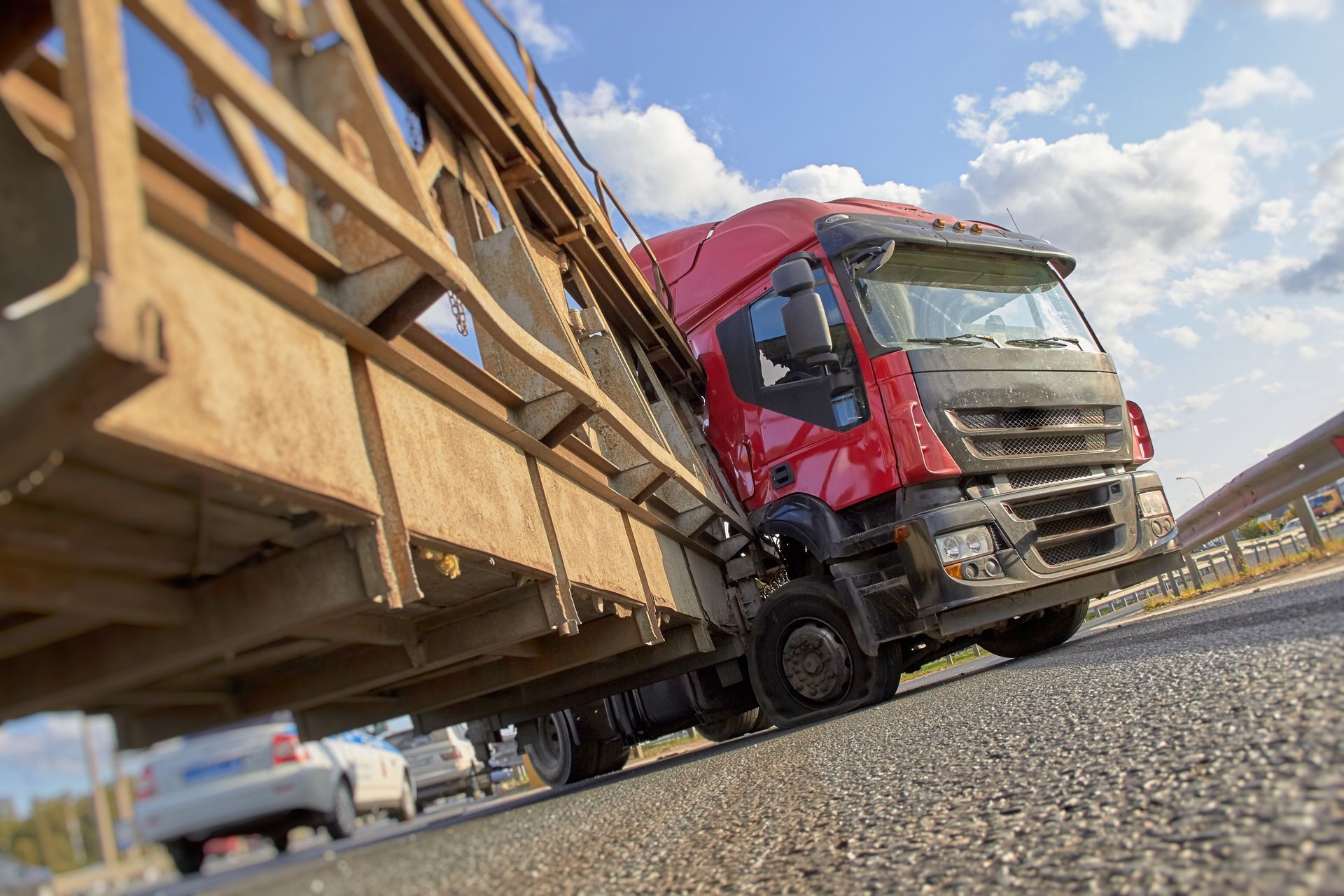Emotional and Psychological Trauma After a Truck Accident

In the aftermath of a truck accident, the visible injuries often take center stage—the broken bones, the bruises, the scars. But what about the injuries that can't be seen? The emotional and psychological toll of a traumatic event like a truck accident can be just as profound, if not more so, than the physical injuries. In this exploration, we'll delve into the often-overlooked impact of emotional and psychological trauma after a truck accident and discuss how these aspects should be integral considerations in personal injury claims.
The Silent Struggle: Emotional and Psychological Impact
A truck accident is not merely a collision of metal and machinery; it's a deeply human experience fraught with fear, anxiety and shock. The emotional journey that follows such an event is complex and multifaceted. Individuals may find themselves grappling with a range of emotions, from intense fear and anger to profound sadness and grief. These emotional responses are a natural part of the human experience in the wake of a traumatic incident, and acknowledging them is the first step toward understanding the full impact of a truck accident.
Among the various emotional responses, Post-Traumatic Stress Disorder (PTSD) is one of the most common impacts. PTSD can manifest in persistent and distressing symptoms, such as intrusive memories, nightmares, and heightened anxiety, significantly impacting a person's daily life and interpersonal relationships. It's crucial to recognize that the effects of a truck accident can extend far beyond the physical, lingering in the mind and affecting a person's overall well-being.
Anxiety and depression often accompany the aftermath of a truck accident, casting a shadow on the victim's mental well-being. The fear of driving or being near large vehicles, the constant replaying of the accident in one's mind or the overwhelming sense of helplessness can contribute to the development of these conditions. The silent suffering of anxiety and depression, if left unaddressed, can further amplify the overall impact on the individual, hindering their ability to lead a fulfilling and meaningful life.
Navigating the Legal Landscape: Factoring in Emotional and Psychological Trauma
Legal professionals face a challenging task when it comes to factoring emotional and psychological trauma into personal injury claims. Unlike physical injuries that can be visible through medical reports and imaging, emotional and psychological trauma poses unique challenges in documentation. Legal professionals must establish a clear connection between the truck accident and the subsequent emotional and psychological trauma emphasizing the importance of thorough documentation, witness testimonies and expert opinions.
Quantifying damages in personal injury claims extends beyond medical bills. Calculating compensation for emotional distress, loss of enjoyment of life and the impact on one's ability to work and earn a livelihood requires a comprehensive understanding of the far-reaching consequences of emotional and psychological trauma. Legal professionals play a crucial role in ensuring that victims receive fair compensation for the full spectrum of their suffering.
Legal Precedents and Evolving Considerations
Landmark cases have played a pivotal role in shaping legal precedents, contributing to a broader understanding of the legitimacy of emotional distress as a compensable injury. These cases guide legal professionals toward a more nuanced and compassionate approach to personal injury claims. As legal precedents evolve, the path towards recognizing and compensating for emotional and psychological trauma becomes clearer.
However, persistent challenges and stigmas associated with acknowledging and compensating for emotional and psychological trauma remain. Breaking down these barriers is essential to ensure that victims receive equitable compensation for all aspects of their suffering. Legal professionals can actively work to challenge these stigmas, advocating for a more inclusive and empathetic approach to personal injury law.
A Holistic Approach to Recovery: Beyond Legal Compensation
Recovery from the emotional and psychological trauma of a truck accident requires a holistic approach. Therapeutic interventions, ranging from counseling to support groups, play a crucial role in helping individuals cope with the invisible wounds left by such a traumatic event. Acknowledging the importance of mental health in the recovery process is a significant step toward a more compassionate and comprehensive model of healing.
Advocacy for a shift towards a more comprehensive compensation model in personal injury claims is imperative. Recognizing emotional and psychological trauma as integral components of the overall suffering experienced by truck accident victims is essential for a just and equitable legal system. By actively advocating for the acknowledgment and fair compensation of emotional distress, legal professionals contribute to a more compassionate and holistic approach to justice.
Support Beyond Legal Aid: The Role of Community and Counseling
Recovery from the emotional and psychological trauma of a truck accident is not a journey that individuals should face alone. Beyond legal compensation, the support of a community and access to counseling services play pivotal roles in the healing process. Recognizing the importance of these components contributes to a more holistic approach to recovery.
In the aftermath of a truck accident, individuals may find solace in community support groups where they can share their experiences with others who have faced similar challenges. These groups provide a sense of understanding and empathy that is crucial in overcoming the isolation often associated with emotional trauma. Moreover, engaging with a community can foster resilience and aid in rebuilding a sense of normalcy.
Seek Justice for Your Personal Injury at ATL Elite
Injuries from a truck accident extend far beyond the visible physical scars. The emotional and psychological toll can be profound, impacting every aspect of a person's life. To truly address the aftermath of such traumatic events, the legal system must adapt and recognize the validity of emotional distress as a compensable injury. Acknowledging and factoring in the often-overlooked emotional and psychological trauma is vital in personal injury claims.
At ATL Elite, we stand dedicated to providing resources for individuals impacted by truck accidents. Discover the expertise of our network of truck accident attorneys by exploring our website. Connect with a nearby lawyer who has experience handling truck collisions, ensuring you secure the legal representation you're searching for.


